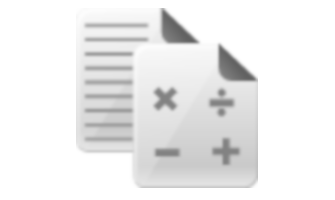Natural resources
Science, Grade 3
Natural resources
Study Guide

Natural resources
Flash Cards

Natural resources
Quiz

Natural resources
Worksheets

Natural resources
Games

Study Guide Natural resources Science, Grade 3
❮
1
/
4
❯
NATURAL RESOURCES Natural resources are found on the Earth and are important to living things. Some natural resources come from below the Earth’s surface. People who dig in the ground to dig up rocks and gather natural resources are called miners. Certain rocks, called ores, contain metals, such as gold, silver, iron and other minerals that people use everyday. Lesson Checkpoint: What is a natural resource? Renewable Resources Some natural resources are renewable, which means that can be replaced. Trees are an example of a renewable resource. Three examples of natural resources we have in abundance on Earth are: sunlight, air, and water. Lesson Checkpoint: What are three natural resources that Earth has an endless supply of? © Copyright NewPath Learning. All Rights Reserved. Permission is granted for the purchaser to print copies for non-commercial educational purposes only. Visit us at www.NewPathLearning.com.
Nonrenewable Resources Some natural resources are nonrenewable, which means that can NOT be replaced. Iron is an example of a nonrenewable natural resource. Coal is another nonrenewable resource. Coal is burned and releases energy. This energy is used for many things, such as generating electricity and heat. We can dig up coal from the earth, but once the Earth’s supply of coal is gone, it can’t be replaced. Oil is another nonrenewable natural resource. Oil is used in many things, including gasoline, which makes our cars run. Since there are many nonrenewable resources that are important to us, we need to use them wisely and carefully. Lesson Checkpoint: What is a nonrenewable natural resource? We can use our resources wisely be CONSERVING those important resources. Conservation is a way of using things wisely without wasting them. Water is an important resource that we should conserve. One way you can conserve water is by turning off the faucet while you brush your teeth. You can probably think of other ways to conserve energy at home. Even nature helps conserve…by helping us reuse water. A wetland helps us reuse the water that is on Earth. A wetland cleans the dirt out of water. Soil in the wetlands filters out the dirt and particles found in the water. Then the plants in the wetlands break down the dirty particles. Lesson Checkpoint: What is one way you can conserve water at home? © Copyright NewPath Learning. All Rights Reserved. Permission is granted for the purchaser to print copies for non-commercial educational purposes only. Visit us at www.NewPathLearning.com.
Soil is another natural resource that we need to conserve and use wisely. Soil needs to be protected from wind and water that cause erosion and it needs to be enriched with nutrients at times. Leaves and grass clippings can be turned into compost instead of being thrown away. Compost is decayed grass and leaves that you can add to your soil to provide nutrients. Lesson Checkpoint: What is compost? Reducing Our Trash Where does all our smelly garbage go to anyway? A landfill is a large area where trash is collected and buried. A liner is placed on a landfill before trash is buried on the land so that the groundwater under the landfill is not polluted. Landfills are filling up and closing down more and more each year. So it is important that we try to reduce the amount of trash we throw away. There are several ways we can reduce the amount of trash that we send to a landfill. For example, we can burn trash in a special furnace, instead of sending it to a landfill. The burning of trash has several benefits: when we burn garbage it gives off energy that can be used to generate electricity. The burning of trash can however have harmful effects on the environment too though. The smoke created when trash is burned can pollute the air. We can also reduce the amount of trash we throw away at home, by following the three Rs: Reduce, Reuse, Recycle Reduce For example, you can reduce the amount of trash you throw away by using only plates, bowls, and silverware that you can wash and use over again, rather than using paper products. Reuse We can reuse certain items instead of throwing them away. For example, instead of throwing away a shoebox, we could reuse it and store something like pictures inside of it instead. © Copyright NewPath Learning. All Rights Reserved. Permission is granted for the purchaser to print copies for non-commercial educational purposes only. Visit us at www.NewPathLearning.com.
Recycle Paper, plastic, aluminum, and glass, can be placed in special collection containers which are collected by a Recycling Truck. These items are taken to places where the items can be made into something new. This process is called recycling. Recycling is extremely important. Recycling is when we take trash made out of certain materials and those materials are made into new products. The four main materials that can be recycled are paper, plastic, glass, and aluminum. Lesson Checkpoint: What is one way you can REUSE an item instead of throwing it away? © Copyright NewPath Learning. All Rights Reserved. Permission is granted for the purchaser to print copies for non-commercial educational purposes only. Visit us at www.NewPathLearning.com.
